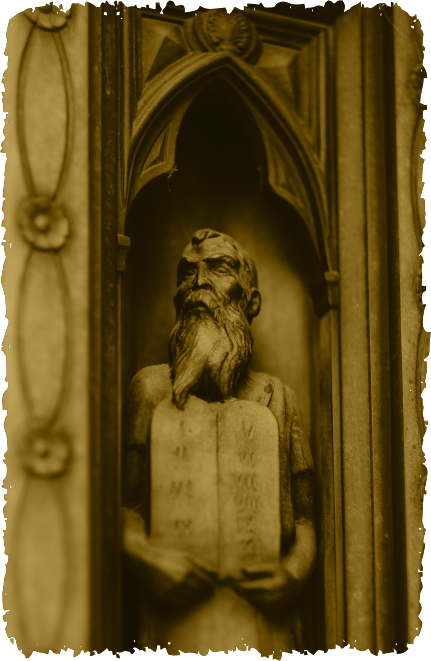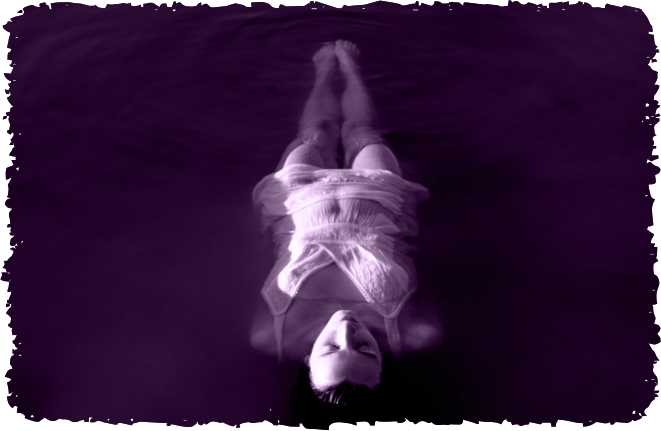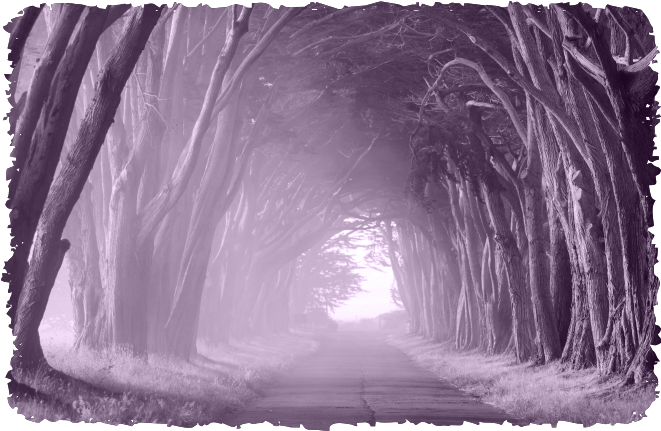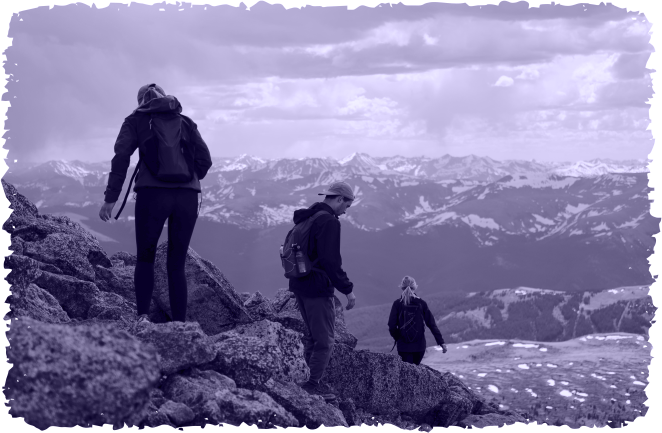To have a life purpose will give our stay here on earth a sense of meaning. It will grant us fulfillment knowing our time and effort here on planet earth was not for nothing. Life can be hard and every one of us has to overcome a considerable amount of obstacles. To realize that it was all worth it, gives us the satisfaction we need to keep going. At the end of our life, we can look back with a sense of pride and fulfillment.
Finding your own life purpose is a very personal thing because it depends fully on what kind of person you are. Of course, “happiness” is the ultimate purpose we all share… but the answer to the question of how we can attain happiness is a very personal one. The more you know yourself and are aware of your desires and feelings, the easier it will be to find a purpose and acquire a sense of fulfillment.
Let’s get to know a bit more about what it means to have a life purpose and what kind of different purposes we can choose from. Maybe you find yours right here by reading this article!
The perfect balance
All living beings are in their particular way responsive to what’s happening in their environment. All life is sensitive and collects with their senses, information from the outside in order to react accordingly. As a result of many millions of years of evolution, the relationship between life and its environment is finetuned and perfected. If you observe a random animal like a bird in your garden, you notice that the bird has a very precise relationship with the world around it. There is a perfect balance.
When there is the wind, a predator, food, a concurrent,… the bird reacts automatically to every phenomenon. It seems like it knows exactly what to do in any instance. Evolution provided the bird with a big set of instinctive behaviors, to respond to every possible situation. A small creature as a bird is advanced to such an extent it has even a sense of wellbeing. It can feel good when it has everything it needs and there are no imminent challenges or dangers. Feeling good or feeling bad is for a bird, like as for many living creatures, the leading force to be able to survive and thrive.
Pain and pleasure

Like a bird, a human is also a product of eons of evolution. Our body is a very complex machine, but the driving force is a very simple one: the ability to suffer and to feel good. Within our bodies, countless chemical reactions are taking place every second. They influence us in order to get what it needs to survive, by the simple means of signaling pain and pleasure. Whatever we are doing in our daily lives, can all be related back to our desire to feel good, to be happy. As long we have a body, we want to be happy and try to avoid suffering.
Luckily, we are not doomed to depend on nature’s will regarding our wellbeing. Our body is provided with lots of ingenious tools enabling us to take responsibility for our own sakes and take initiative by pursuing happiness. When we are hungry, we don’t need to wait helplessly until it rains chocolate drops, but we can get up and get us some food in order to feel satisfied. And we also, like our friend the bird, have lots of instincts to avoid misfortune. I’m sure you can dodge a snowball or outrun your mother in law when necessary. But what makes us as humans really special and advanced, is our mind. Our mind is our best tool in acquiring happiness.
Making sense with our minds
Thanks to our minds we are able to respond in numerous ways in a given situation. We aren’t just simply reacting instinctively when our environment is challenging us. Instead, we are able to make sense of the situation and contemplate the best way to respond from our personal perspective. In case of danger, with no time to lose, our instincts still take over with for example a fight, flight, or freeze response. But in most situations, we rely on our minds to come up with a proper response, an idea of what to do.
For example, we can feel a lot of anxiety when we need to give a big presentation. Instead of reacting instinctively and run away as fast we can, our mind is able to calm us down.
While we are waiting for our turn, our minds can make sense of the situation in a lot of different ways. For example, we can boost our wellbeing in this stressful situation, by observing the other presenters and realize they are also very nervous. We can also think about our past successful presentations and conclude this one will go fine as well. Our mind has the amazing capability to overrule our feelings and respond in a better way than mere instinctive reactions would do. The reason why we as humans were able to thrive and even master our environment, is because our minds made us capable to make sense of every phenomenon from different angles and contemplate countless different responses.
How we make sense determines our responses
Our mind is our most powerful asset in helping us to respond to whatever situation, but that’s also creating lots of dependencies. We have a very strong need to be always able to make sense of everything before we decide to take action. If we don’t understand a situation, we feel blocked and don’t know what to do. We do feel the urge to do something about the state of our wellbeing, but if our mind can’t find a logical pattern we are stuck.
Culture, language, civilization, education,… are all there to help us fill our minds with preformatted logical patterns. These patterns are our beliefs, values, knowledge, and so on. They provide us our own individual perspective which helps us to make sense of the world in a certain way. Our beliefs, opinions, and knowledge work as filters and make it easier to always make logical sense of a situation. We have learned to respond in a specific way, based on the experience of our former generations. All we need to do is to believe, and we’ll always know what to do.
Of course, these beliefs can work both for and against you, since every situation has its own uniqueness and no belief is a guarantee for truth. But essentially, making logical sense of a situation is a must for every human being. Because only when we understand a situation, we can react with a proper response that helps us increasing our wellbeing and leading us to a state of happiness.
Our beliefs help us to make sense of the world around us. When we understand a situation, we’ll always know what to do.
Why do we need a purpose?
In order to know what to do, we first need to understand the situation and use this information to evaluate and analyze what is going on. As human beings, we always need a reason to get to the action, because we don’t want to make a wrong move or waste time and efforts. Maybe after knowing more about what’s going on, we don’t even need to do anything at all. That’s why we want to know the purpose: a reason why we should do something or not. A purpose is an answer to the question “Why?” and starts with “Because”. Acting purposefully is about taking the “right” action as a response to a certain phenomenon. Of course, whether a response is right or not, depends on your perspective. The way we make sense of a situation, filtered by our beliefs, will determine the kind of action we will undertake.
Thanks to the careful evaluation of every situation, we can come up with a “meaningful” response. While we are waiting our turn to do our presentation, we notice we are nervous [making sense] and can act by drinking a glass of water [response] because we learned water has a soothing effect [belief] and can calm us down [purpose]. To find a purpose is one of our mind’s greatest talents and essential for our survival and wellbeing because the purpose makes us act accordingly.
Making sense of our own life

The mind is a result of millions of years of evolution and helped us significantly with our survival and it granted us also some interesting byproducts. Our mind is not only capable to make sense of a situation outside of us right here and right now, but about anything whatsoever. Our curious nature makes us try to look for meaning in anything, also if there is no urgency to take action at all. We are able to contemplate different imaginative scenarios in our head, but also to reflect on our own life.
Like we can become aware of our own nervousness before a presentation and contemplate what to do about it, we can reflect on ourselves as a person and on the life, we live. Instead of contemplating a concrete action to ease our nerves before a presentation, we can come up with very general ways to find happiness in our life. The way we make sense of the person we are and the world around us will determine how we feel and think about what we need to be more fulfilled. Our beliefs, opinions, values, and personality as a whole, influences our general discomforts and desires. They trigger us to come up with ideas to create a happier life.
Happiness is our ultimate purpose
As long we are residing in our human bodies, happiness will always be our ultimate purpose. That’s the way millions of years of evolution shaped us, for our own good. The life purpose we all share is “happiness” because after happiness there is nothing else left to pursue. Imagine you are in a permanent state of absolute happiness. Being in such a state will end every need and desire. There will be nothing left to do or to wish for. The moment everyone would be absolutely happy, life as we know it would disappear. Why would we have the need to take care of ourselves if there would be no feeling, thought, or signal causing a little distress? We would all die with a big smile on our faces. It sounds strange, but luckily all moments of happiness are only temporary.
Happiness is our ultimate purpose, but as long we live as human beings, there is no way to permanently attain it. There is always something we need or want to change. Whenever we attain a certain goal, there is always something else we want or some discomfort we need to get rid of. Maybe our disability to attain absolute happiness is a blessing because that means there is always something meaningful to do. Our chronic unhappiness is a necessary premise to have a purposeful life. Without discomforts there is no reason for our actions, there is no purpose. Purpose only exists because of our wish to be happy. We can only have a meaningful life if we can accept a certain amount of adversity and discomfort. We need a situation to make better and therefore our life here on earth is, strangely enough, exactly right since there are tons of meaningful things to do.
The pursuit of happiness is a paradox
Happiness is our ultimate purpose, but is it also our life purpose?
The pursuit of happiness is like mopping the floor while the tap is still running. It’s important to realize we will never really be able to attain happiness and make it everlasting. If we keep pursuing happiness by attending to every need, desire, and discomfort we end up in a vicious circle. Also, we’ll keep very little of our power in our own hands to create the life we want. As human beings we want a meaningful life, we want our actions and responses to be purposeful. But is it meaningful to chase something unattainable? The pursuit of happiness is a paradox since it’s meaningful and meaningless at the same time.
But this doesn’t mean we should totally endure being caught up in this vicious circle. We can use our endless desire for happiness to our advantage. Our yearning for happiness and avoidance of pain is already many millions of years our greatest motivator to get in action and get things done. We can really use this powerful push in the back in order to do great things. All we need to do is to find a personal life purpose that is representative of our happiness. Instead of being mere reactive and act on superficial desires or discomforts, we have the power to create our own purpose and give our lives a bigger meaning.
The pursuit of happiness is meaningless unless we can use the craving for happiness to our own advantage, by supporting our life purpose
Take the power back!
By taking up a life purpose we are using the unavoidable pursuit of happiness for our own agenda by doing something really meaningful, we can dedicate our lives to.
Evidently, there is no escape from the vicious circle as long we are human beings and focused on the physical world. We will avoid pain and seek pleasure our entire lives, but that’s absolutely okay. This behavior is in our DNA and we need to accept it. In the end, it’s there to help us and to make sure we take care of ourselves and stay alive. But we have the power to connect this instinctive behavior to an agenda of our own. We are able to use this burden and turn it into an asset.
Given the fact a state of complete and permanent happiness is unattainable, how can we live a purposeful life? Is there something we can live for, something meaningful we can do instead? In the end, all we will ever do is try to attain more happiness. Whatever action we undertake is in one way or another to improve our wellbeing. But our mind is able to come up with anything whatsoever that can represent a happier life. Our imagination can find a really great placeholder we fully believe in. For example, I’m sure we all believe that when there will be no more war, we’ll all be happier. So we can choose to dedicate our lives to the pursuit of peace if we feel the importance of this theme within ourselves. If we do a great job in creating peace, we’ll also be proud we are doing something meaningful, which will also contribute to our wellbeing and keep us going.
Picking up a life purpose
The conscious search for a life purpose starts with the realization that happiness is unattainable, but there is no escape from its pursuit. We don’t want to dedicate our entire life chasing after something we will never really get. But since we need to chase happiness anyway, we can make it count nonetheless by devoting ourselves to something we believe in. Taking up a life purpose is about imagining consciously what we, in general, could do in order to have a meaningful life. Not in the way of completing concrete acts like changing your job or buying a house but by acting on a perspective of life you truly believe in.
If you want to consciously choose your life purpose, it’s necessary to find a certain life philosophy. Such a philosophy can be very personal or it can be a perspective that is shared by many people. What matters is that you truly believe living by its principles will grant you a meaningful and better life. But even if you are not aware of your own perspective on life, your beliefs will determine how you will live. You can for example dedicate your life to your religion without ever consciously have chosen for it. In this case, you never found your life purpose, because you never have been looking for it in the first place.
Finding out your life purpose is a conscious search for meaning in your life, a result of self-reflection. People can live for something like a tree grows leaves and a bird builds a nest, but to have a purpose means you are able to answer why you are doing what you do. Having a purpose is living consciously by what you believe in. You live and act in a certain way following what you believe. Because you are convinced living this way will give you more satisfaction, even if you’ll never attain a permanent state of happiness as long you are alive.

Is your life philosophy truly representing you?
Who we are will determine the way we are making sense of reality. Our personality, beliefs, past experiences are working as filters every time we are observing and reflecting on our lives or the world around us. Those filters will influence how we interpret everything and therefore also what we judge as being meaningful or not. The way we think determines what kind of actions will give us more satisfaction, happiness, and a sense of pride. Who we determine what we believe in, our perspective on life: our life philosophy.
Our life philosophy will dictate our life purpose. Consequently, it’s important to find out who we are and if our perspective on life is really a good representation of who we think we are. We don’t want to dedicate our lives to a purpose about which we find out later it was completely meaningless and a waste of our time. There are examples enough about people who dedicate their lives to a cause which they were made to believe but found out later it was a lie.
Before deciding about taking up a certain life purpose, it’s a good idea to reflect on our own beliefs and on our own personalities. We can look out for beliefs and ideas which were given to us through our education and culture and question their validity. The more you are able to match your beliefs to the person you really, the better you can take up a life purpose that is very meaningful to you personally. Essentially, that’s the purpose of a purpose: being really meaningful to you.
How can I find my life purpose?
The better you know yourself, the easier it is to find your life purpose. The more time and efforts you put into self-inquiry, the bigger the chance you’ll find what to do with your life. He who seeks shall find. Your personality ranges from the more superficial outer layers to very deep layers defining your uniqueness more strongly. The deeper you go inside, the more outspoken and clear your image about what makes you authentic will be. Your perspective on life and your idea of what is a meaningful purpose will depend on how deep in the “inner onion” you get.
On the outside layers of your personality, you will find traits that have to do with your identity, survival, and past experiences. The deeper layers describe more the person who you are with fewer influences from the outside and your body. They contain more authenticity. You can call it the higher self, soul, or core. What you find deep inside is what truly drives you and is unique about you. When you undertake your journey of self-discovery and inquire about your ‘self’, you can identify the ideas and beliefs which do not really belong to you and discover your deeper values and truths. Most important you can also discover your gifts and talents which you can apply to work for your life purpose.
Your perspective on life, and therefore your purpose, will also depend on which of your traits are dominant. If you live by the more inner layers of your higher self, your perspective will be different than if your behavior is more dominated by the body or by certain limiting beliefs. The kind of person you are will determine the way you see the world and what is meaningful to you. What kind of person you are depending on what you are aware of because there is more about you than meets the eye. Being aware of what really drives you and what you are really talented at will help you to live more by your higher self, which makes a better match with your life purpose. If you discover your essence and live from its perspective, your life purpose will come naturally.
The better the match is between you and the life purpose you choose, the more your life will feel meaningful and the more driven and loyal you’ll be to work for your it. The more meaningful your life feels, the more happy you’ll be.
An overview of possible life purposes
Depending on who you are, your self-knowledge, your life philosophy, you will take up a certain life purpose. Here below, I’m trying to give an overview of the most common life purposes people choose. I don’t want to state that this overview is complete or perfectly correct. It’s just a model consisting of a limited amount of categories to give a quick and easy idea of how we choose our life purpose based on who we are and what we believe in. This model could help you find your place and bring you closer to find a purpose of your own. There are also no differences in quality regarding the different purposes. A good life purpose is one that is right for you and is matching the way you feel, who you are, and what you believe in.
1. My life purpose is to survive and create safety for me and my children
When we live more through the outer layers of our personality, our survival instincts are quite dominant. We’ll live more from the perspective of our bodies. In the first place, we want to be safe and make sure our children are safe too. We make sense of the world as being quite a dangerous place. We need to stay alert and suspicious because people might take advantage of us or trick us. We need to defend ourselves and protect what is ours. There is a lot of competition going on with the others and the generation of material wealth is of the uttermost importance. Happiness is about having enough and being able to pass it on to the next generation of the family.
Living through our body means our fear and greed are very dominant drivers. We have the urge to generate more and more wealth and even if we have more than enough, we are afraid to lose it. We appreciate material goods very much and spend a lot of effort in the maintenance of them. Even if we are rich, we want to keep working hard. If we have plenty of money, we like to spend it on safety and comfort like a very big mansion. But most of all we want to save up as much as possible for the next generations.
Protecting yourself and your family is of course very meaningful. But is it also meaningful to dedicate your whole life to it? Making sure the next generation will be safe and without shortcomings as well, can be a very noble life purpose. You can be proud of yourself you were able to give your children a better life and future than you had. People with this kind of life purpose might live in difficult conditions and fighting for safety and for the wellbeing of their children is the best thing they can do within their power. But often the next generations keep sharing the same life purpose, even if there are enough material wealth and security. The fear and the suspicion just keeps dominating their perspective. It’s a difficult thing to let go of materialism and to take up a life purpose that is more courageous and this can take several generations. One can state that living purely for survival and for the wellbeing of your children is a meaningful life, but you are also missing out on discovering yourself on a deeper level and the enjoyment of your life.
In order to find happiness, our life purpose is to survive and keep ourselves and our children safe by creating enough wealth and comfort.
2. My life purpose is to cherish and accumulate as much pleasure I can
Our second life purpose is one of hedonism. Hedonism is about pursuing happiness literally. Maybe we can’t achieve a permanent state of happiness, but let’s try to experience as many good moments as possible. Our life purpose as hedonists is about acquiring as many pleasurable sensations as possible. We live only once, so let’s take advantage of it! In this case, we are also living through the perspective of our bodies, but our life is not dominated by fear and greed but by desire. We are not afraid to live and we want to explore, scratching items from our bucket list, and seize the day.
As hedonists, our body and life, in general, is a gift because of its capacity to experience so much pleasure. When we are on our deathbeds we want to be able to look back on a life we fully took advantage of. We want to be able to say that our life was meaningful because we had tons of great experiences. We had nice holidays, enjoyed great food, had the best sex, enjoyed the company of lovely friends, and so on. Our fear is about having regrets we didn’t take all the opportunities life has to offer. We don’t want to miss out on something or not being able to do what we desire. Working and making money is not so much about creating security or for the sake of it, but its purpose is to acquire freedom and buy pleasure.
For sure it is meaningful not to waste the time here on earth that is given to us. Trying to have as much joy as possible in your life can be a great purpose if you later can look back on your life without regrets and feel you really experienced everything life had to offer. On the other hand, being able to live for pleasure is more a question of luck. We have to have the luck our life conditions are favorable enough to enable us to experience all those joyful moments. For all we know, we could have been born being very poor or with severe health problems. Therefore, it’s maybe a bit superficial to state that hedonism is a great life philosophy, since it’s only applicable when your conditions are favorable.
The purpose of life as hedonists is to give your life meaning by accumulating as much enjoyment and pleasurable experiences as possible. To take maximum advantage of life and not missing out is a must!

Secondly, as we discussed above, the pursuit of happiness and the avoidance of pain is a result of our evolution.
You can say that living for pleasure is programmed within us. Pursuing happiness is therefore maybe not a very empowered way of living, but more a reactive and automatic one.
Also, hedonism is a very individualistic approach, since we are very focused on our own pleasure and we are not really into account that the more unfortunate people can’t share in this lifestyle.
When we live to satisfy our wellbeing, we live through the perspective of the more outer layers of our personality. We are missing out on discovering our deeper self, a more noble life philosophy, and a possible personal contribution to the wellbeing of the collective.
3. My life purpose is to be virtuous and stay loyal to my principles
A meaningful life is a virtuous life. It is a life wherein we take up noble principles and stay loyal to them. We outgrow our form, the animalistic way of living in exchange for what really makes us human: our rational thinking and our ability to believe in something bigger than ourselves. Taking up this life purpose means we give up the pursuit of immediate gratification of our needs for pleasure. We realize that the mere pursuit of happiness can’t be seen as a purposeful life. A person should not just chase certain desires and blindly follow their genetic coding. We can acquire a greater form of happiness by delaying satisfaction. We realize chasing pleasure after pleasure will not grant us a meaningful life and the inability to attain our desires is also a great cause of our misery. Pain and adversity are a part of life and can also be meaningful. When we accept and overcome our struggles, our happiness will be even greater in the end.
When we take up the life purpose of virtue, we truly take up a certain life philosophy. We make sense of ourselves and the world around us from a certain perspective we really believe in. We are seeing meaning in why we are here and why the world is the way it is. Our life here is a challenge and our purpose here on earth is to prove our worth. We live our life for something that is bigger than us. This can be a religion, ideology, or any kind of doctrine. A meaningful life is to live by the principles of our convictions and be a good, virtuous person. Imagine you lay on your deathbed and you can die peacefully knowing you did a good job and honored your beliefs by living to its standards. You realize you have been a good example for the people who come after you. You have proven you can control your lower needs and desires and disciplined yourself to be the person you want to be. You can state this is purposeful life because you empowered yourself to be more than reactive and dictated by its biology.
In order to live a meaningful life, we should overcome our biological nature. We should believe in something bigger than us and stay loyal to its principles by being virtuous people.
We create meaning in our lives by finding something we believe in. By making sense of the world we create structure within the chaos. But are our beliefs who we truly are on a deeper level? Is it representative? We need to carefully reflect if our principles are our conscious choice and if we are not believing in something that was pushed upon us in all subtilty. The danger is if we, later on, find out our beliefs were not our own or false and we dedicated our lives for nothing.

Living following certain principles puts the focus on “being” a certain person.
We need to be good and virtuous people, but what about the meaningfulness of discovering and being ourselves?
When the focus lays on being, there is less energy put into “doing”.
When we don’t do anything wrong in our lives and are good boys and girls, we maybe miss out on certain meaningful experiences. Perhaps by focusing on being a good person, we will also undertake fewer actions and therefore miss out on meaningful contributions and accomplishments.
Another notion is that when we dedicate our lives to discipline and being virtuous, we delay purposely our rewards to the future. We can believe our good behavior will be rewarded after our death with permanent happiness and bliss, but therefore we could possibly miss out on enjoying life at the present moment and not allowing ourselves some innocent pleasure.
4. My life purpose is to live my potential and make the difference
A purposeful life is a one wherein we mean something. A good life is not about chasing pleasures or following certain principles, but about meaningful actions. Our life philosophy is that we can build a world where everyone can be happy and we can personally contribute to such a better world. When we make sense of the world around us, we see so much suffering and so much work to be done. Happiness is something we can acquire by working for it. We don’t give up hope to be happy and we don’t pursue those little joyful moments, but we feel empowered we can have it all by rolling up our sleeves and getting it done. Being happy in a better world for everyone is our responsibility as humans and we can make it happen. We are genuinely caring about what’s happening in the world and we want to be involved to bring positive change.
By discovering who we are deep inside we can find our core values, our gifts and talents, which we can activate to take up a mission, our life purpose. It can take a long time before we really find our purpose, because we really want to “feel” a match between the persons who we are and what we want to do. We also really are driven to find our life purpose, it’s really important to find something meaningful to dedicate our lives to. Therefore, we spend a lot of time finding out who we are authentically and which cause we want to dedicate our lives to. To find the right thing to do can be a real struggle. We feel inside we are meant to do something, but before we have really found ourselves, we don’t know yet our exact mission. But most important, we want to be the best versions of ourselves. We want to reach our full potential. Only by living through our full potential, we can accomplish great things and live a meaningful life we can be proud of.
A meaningful life is measured by one’s actions. Our life purpose is to discover our capabilities and fully live our true potential by using it to contribute to a better world where everyone can be happy.
We want to have the feeling our energy and talents are not wasted and have a meaningful contribution to a better world, which we can be proud of. When we are on our deathbeds we want to be able to say that our life was not in vain, because we did everything we could to make things better and we can be proud of our own contributions and accomplishments. We understand a meaningful life is not only a life full of happy moments, but bad experiences are also instructive and contribute to our development. It’s important to engage yourself to a cause which is challenging enough to unleash the best in us. The sense of accomplishment is vital to us, even the road towards it is difficult. To live in a better world is great, but we want to feel we made a significant contribution to it.

Discovering what drives us, living up to our potential and contributing to a meaningful cause is a great life purpose. But of course in this case we don’t make it ourselves very easy.
Other people might ask us why we make it ourselves so difficult. We live only once, so why caring so much and do all these efforts instead of enjoying the moment? People who take up a very serious purpose and want to go to the extremes to prove themselves or make a great contribution, put of course lots of pressure on themselves. Therefore, it happens to get a burn out or to get overtired.
The creation of high expectations of ourselves make us also go through difficult moments where we face our limitations and get disappointed in our own lacks. We can miss out on learning to accept ourselves and the world in general. We might fall to the illusion we can do anything and get overly idealistic, overconfident, and then we get confronted with reality and forced to face the facts.
We can also take ourselves and our cause too serious and fail to relax and take things a bit more easy. We don’t need to make things more difficult than they already are.
5.My life purpose is to become spiritual and to detach and free myself from pursuing happiness
When we spend much of our time inquiring and contemplating ourselves and the reality we live in, sooner or later we’ll start discovering spirituality. Spirituality is the realm of the non-physical and where there is no physicality, there can also be no suffering. It’s by being human and living through our human bodies, we are condemned to the pursuit of happiness and the avoidance of pain. As long we have a body, we’ll have desires, needs, cravings, and also there will be sickness, adversity, and pain. We comprehend that the pursuit of happiness is never going to provide us real fulfillment. And we also realize that any other way of “meaningful fulfillment” is illusionary in the end. It’s illusionary to believe we can get what we want or to believe we are in control of our lives. Every “wanting”, whether it is complete safety, joy, a better world, being virtuous,… can never be attained within the limitations of our human form. We’ll always come to a moment when we face our limitations and get disillusioned or we’ll stay unaware of these illusions we created for ourselves.
Our purpose is to drop our beliefs, our desires, and discover ourselves deeper and deeper until we reach a state of pure being wherein we are detached from our human limitations. Such a state of pure being, we call spiritual enlightenment. When we live through a state of enlightenment we live a life as the ultimate observers of our physical form. Therefore, we’ll be detached from its limitations and be free from the everlasting vicious cycle of desiring happiness and the avoidance of pain. Therefore, one might state that the purpose of life is to overcome our humanity, to break through its limitations. By letting go we attempt to transcend our form and live through the perspective of our formless state and have peace.
The purpose of life is to detach from it and escape the limitations of our physical form. The only way to everlasting happiness is to become free and live through a state of enlightenment.
It’s a great life purpose to try to find your true essence as pure consciousness, but this journey is not for everyone. Spirituality can easily become another belief, doctrine, or religion, something we identify with and want to acquire, while true spirituality is about letting go of beliefs. In order to be able to take up a spiritual life purpose and succeed in attaining enlightenment, we need to be ready to detach from the outside world and really feel the burden of our physical limitations. We need to be serious about it and really feel this is our path, otherwise, the world around us will keep seducing us and distract us from our quest. It’s a very difficult job to stay focused and loyal to this life purpose because we are human after all.

The downside of picking up this life purpose is that it’s a very lonely one. If we truly are ready to undertake this journey not many other people will understand us. We’ll make sense of the world in a completely other way and be often misunderstood and feel we don’t belong. On the spiritual path, we’ll experience also many frustrations, desperation, and depressive episodes because we will very often go into confrontation with our own humanity. Another shortcoming from taking up this purpose could be that we might diminish the beauty and value of being human and reduce it to something we need to get rid of. We can start finding everything meaningless, not worthy, and maybe get a nihilistic worldview. An important part of the spiritual path is to embrace our humanity. We can only outgrow something when we confront it and accept it fully.
Let’s find your life purpose together!
Good job if you made it to the end of this article. You must be quite persistent in your quest to find your life purpose! This article is of course very general and theoretical. But maybe it could already help you somehow with the items below:
- To understand how our human body and mind desire pleasure and tries to avoid pain
- To understand how our sense of purpose is derived from our desire for happiness
- To realize happiness is our ultimate purpose, but that it’s unattainable
- To use your drive to pursue happiness to your own advantage
- To get to know yourself better and discover your life philosophy
- To get an insight into the main life purposes people pick up
In our conversations, we can focus on your specific needs and practically find a life purpose matching with the person you are.



